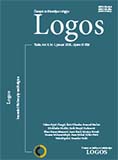APORIJE DEMOKRATIJE
APORIAS OF DEMOCRACY
Author(s): Bernard HarbašSubject(s): Political Philosophy, Structuralism and Post-Structuralism, Sociology of Politics
Published by: Logos – Centar za kulturu I edukaciju
Keywords: democracy; the political; representativeness; disagreement; consensus; democracy to come; populism; singular plural;
Summary/Abstract: This article deals with postmodern understanding of the problem democratic politics is facing. Throughout history, democracy has had different determinations and thus cannot have a universal definition. Since in democracy everybody’s voice count, it should also support the one who rejects it, and thus this order, in its full realization, creates autoimmunity (Derrida). For Jacques Ranciere, democracy cannot be defined as agreement, but on the contrary, as hatred and disagreement, because only that way fundamental democratic principles and procedures can be respected. Since agreement and equality lead to passivity and annul ability of critical individual thinking, resistance towards democracy itself is necessary in an authentic democracy. For Alain Badiou, democracy means a possibility for everyone to do what he wants and without any criteria i.e., that everybody expresses his opinion without argumentation. Therefore, he understands such order as a space for fulfilment of petty needs. Jean-Luc Nancy understands democracy not only as political order, but a way in which existence appears. He prefers neither direct nor representative democracy but looks at it as a singular plural appearance of the sense. Contrary to some postmodern theoreticians, Chantal Mouffe considers democracy can be realized only in its representative form, but that it also needs to consist of dispute and discussion. When the disputable dimension of democracy disappears, we entre into the post-political state characterized by agreement and passivity. Purpose of this article was to present and analyse some of the characteristics of democratic principles such as conflict, dispute, agreement, indeterminacy but also to point out possibilities of thinking democracy not only as political order, but also as a way of living.
Journal: Logos – časopis za filozofiju i religiju
- Issue Year: 8/2020
- Issue No: 1
- Page Range: 149-160
- Page Count: 12
- Language: Bosnian

